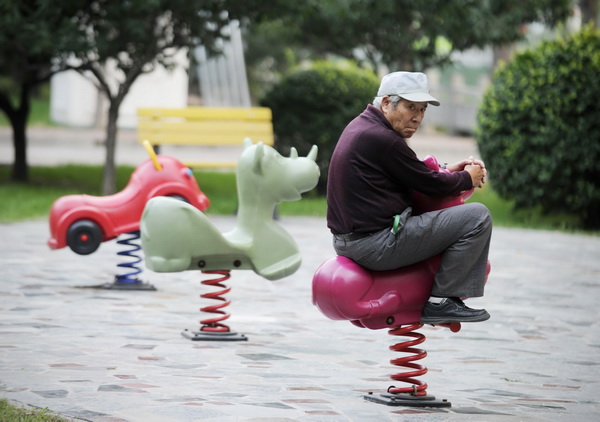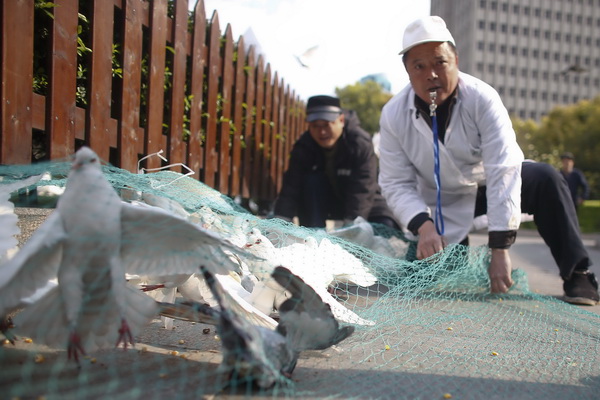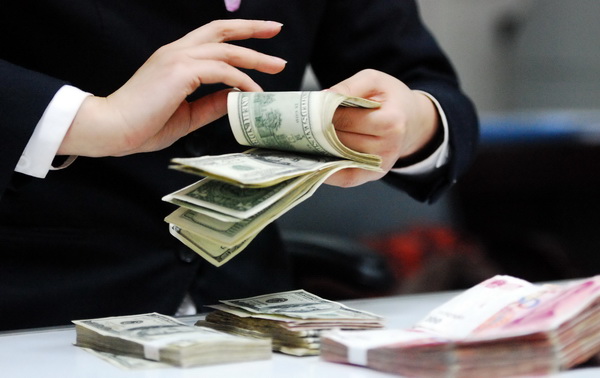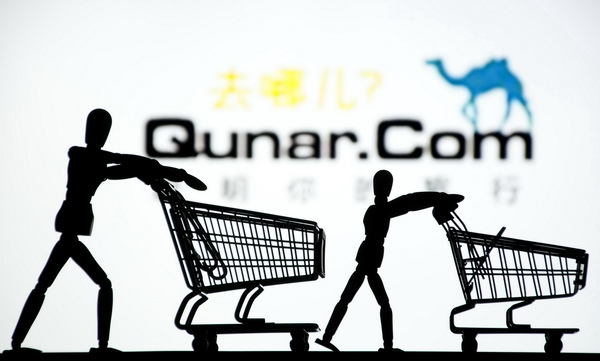

Highlights from the EO print edition, No. 615, Apr 15, 2013
Scholars Propose an Inheritance Tax in China
News, page 2
~ The motion to impose an inheritance tax in China was shelved 10 years ago because authorities felt conditions weren't right. Now, the idea has returned because of two research reports.
~ In January this year Feng Qiaobin (冯俏彬), an economics professor from the China National School of Administration, published a report entitled "The Time for Inheritance Tax has Come." It said that contrary to 10 years ago, China now has the economic base, necessity and atmosphere for public discourse to impose an inheritance tax. He proposed a system similar to that of Germany and France.
~ In March, the China Institute for Income Distribution at Beijing Normal University published a separate report titled "Inheritance Tax System and its Inspiration For Income Distribution in China." The report said that China already has most of the conditions to impose the inheritance tax and it would promote social equity, economic transformation and narrowing of the income gap.
~ The State Council has said that it's "researching levying an inheritance tax at the proper time," but the Ministry of Finance told the EO that there's been no research related to it recently and no instructions from higher leaders.
~ Of the 127 countries with tax systems around the world, almost 100 have or used to have an inheritance tax. Of the 30 member states of the Organization for Economic Co-operation and Development (OECD), 24 have an inheritance tax.
~ China put an inheritance tax on the list of possible taxes in 1994 and started research on it in 2002. But in 2003, authorities believed conditions were immature and postponed the motion. "The environment for inheritance tax is very different now," said Feng Qiaobin. "China's GDP per capita has already reached the level of a middle or upper class country, but China's wealth has been concentrated among very few people. An inheritance tax is both possible and necessary. We can start to discuss it now."
~ Feng also pointed out that an inheritance tax could have side effects, like the rich transferring their assets to other countries or parents transferring assets to their children in advance. Feng said that the inheritance tax is political rather than economic, the government is mainly concerned with politics rather than with raising more money through the tax.
Original article: [Chinese]

Pushing Back Retirement Age Still On Agenda
News, page 4
~ An expert in China's Ministry of Human Resources and Social Security (MHRSS) said that it was almost certain that the ministry would not raise the retirement age before 2015.
~ He told the EO that the proposal was still being studied and would gradually become clear after the top-down design of social security system reform was completed.
~ On Mar 16, Deputy Minister of MHRSS Wang Xiaochu (王晓初) officially said that MHRSS was studying the plan to raise the retirement age rise but gave no timeline or details. However, he said that MHRSS would formulate and push forward the proposal, taking overall consideration of China's population structure, employment and social security.
~ On Apr 7, Dai Xianglong (戴相龙), party secretary of the National Council for Social Security Fund (SSF), suggested raising the retirement age to make up for the pension deficit, which triggered heated debate.
~ From the opening of the "Two Sessions" in March until now, apart from support from some government officials and experts, common people have voiced their opposition to raising the retirement age.
~ Administrative expenditures currently use up one-fifth of the total pension revenue each year. The secretary-general of the Social Policy Research Center of the Chinese Academy of Social Sciences Tang Jun (唐钧) proposed that, instead of rushing to push back the retirement age, the government should slash various administrative expenditures like the three public consumptions (overseas travel, receptions and cars for officials), as well as take measures to expand fiscal spending into the pension funds and re-appropriate state-owned assets to help fill the potential shortfall.
Original article: [Chinese]

Special Feature: H7N9
Nation, page 9-13
~ This week's Nation section focuses on the new strain of avian influenza (H7N9) that has already killed 11 and infected 60 people in China.
~ The first article tells the story about the first two victims of the new strain of avian influenza in Shanghai. On Feb 25, a man aged 87 and his son were sent to Shanghai No. 5 People's Hospital with symptoms similar to that of severe pneumonia. Doctors and experts from Shanghai's disease control center eventually discovered that the two men had contracted a new strain of avian influenza known as H7N9. Due to a lack of effective treatment, the two patients died in the hospital. Experts said a vaccine against this new strain of influenza will not be available until July.
~ The second article is about the joint working system involving governments in the eastern provinces of China, where the Yangtze River meets the ocean. Shanghai is working together with other cities on disease control and has established a joint working mechanism with Jiangsu, Zhejiang and Anhui province.
~ The third article talks bout China's disease control system. H7N9 has been another test for China's disease control system. China's Center for Disease Control (CDC) set up an expert consulting group soon after it heard news about the new strain of avian influenza.
~ The fourth article examines the question of who should pay for the treatment of H7N9 patients. In many parts of the country, patients are expected to pay the expensive hospital fees themselves, which can go as high as 10,000 yuan per day. Sometimes hospitals are forced to pay for the patients in order to continue the treatment, but many patients have no money to repay them. The article quotes experts who suggest that China should set up special funds to help finance health care in these kinds of situation.
~ The last article is about the influence H7N9 has had on the agricultural industry in China, with a particular focus on the poultry and poultry feed industries.
Original article: [Chinese]

The Dilemma of RMB Internalization
Market, page 19
~ On Apr 10, Bank of China finished its first direct exchange between the Chinese RMB and Australian dollar with the ANZ Bank. This means that the Australian dollar has become the third currency after the U.S. dollar and Japanese yen that can be directly traded for RMB. For China, this is aimed at diminishing the influence of the U.S. dollar, although it remains the RMB's anchor currency.
~ On the same day, the RMB exchange rate was 6.2548 to the dollar, a then record high since currency reform. This depreciation along with newly revealed consumer price index (CPI) and producer price index (PPI) data raised concerns of a downturn in China's economy.
~ "Although China's economic data was below expectations, the RMB is still undervalued and its long-term trend of appreciation is to be sustained," said Li Wei (李炜), an economist from Standard Chartered Bank. "The developing world is becoming a driver of the global economy and that is the general trend."
~ The biggest worry from the RMB depreciation is that it will reverse the process that's been underway and scare away investment, which could result in further depreciation. This vicious circle could have negative implications for the internationalization of the currency.
~ Growth vs. the strength of the yuan has become a dilemma for China's central bank. The paradox of RMB internationalization is that the currency needs to appreciate so that it can expand internationally. However, a strong RMB may hurt China's export enterprises.
~ "From the perspective of the macroeconomy there will be difficulties," Li Wei said. "The economy is slowing down. Depreciation of the RMB may help with its recovery but it could also lead to panic in the market and other negative effects. If China really wants to push forward its economic transformation, the RMB should appreciate."
Original article: [Chinese]

Hotel Agencies Boycott Qunar for Increasing Charges
Corporation, page 29
~ From early April, about ten Online Travel Agency (OTA) websites including eLong.com, Mangocity.com, 17u.cn and Tempus.cn removed their hotel listings from Qunar.com.
~ Previously, the average cost per click (CPC) was 1.5 to 2 yuan, but Qunar unilaterally increased prices by 40 to 80 percent according to different hotel prices. Qunar told the EO that the price increases were not that high, but declined to give detailed figures.
~ CPC is one of the most important profit models for Qunar. When customers click the hotel reservation button on Qunar.com, the system will automatically redirect to relevant OTA websites. The OTA websites then pay Qunar for each visitor that's directed to them.
~ Some online travel websites guessed that the aim of the large price increase was to "force" OTA websites to join in Qunar's online trading platform TTS.
~ Through TTS customers can complete the whole process of searching, making reservations and paying on Qunar.com with no need to be redirected to OTA websites.
~ Under this system, Qunar forwards transaction records and money to relevant OTA websites and gets all the information and transaction records for the OTA's clients. If OTA sites sign on for the TTS system, they pay less.
~ According to Wei Changren (魏长仁), CEO of ctcnn.com, by having the transaction records, Qunar can accurately calculate the costs of OTAs, which has provided a reference for price increases.
~ In June, 2011, after buying a 62.01 percent stake, Baidu became Qunar's largest shareholder. Since then, Qunar has been preparing for its IPO. Some have assumed a connection between the launch of the TTS system and the upcoming IPO, but Qunar has denied this.
Original article: [Chinese]
Corruption at FAW Group
Automobile, page 33
~ On April 11, the Shenzhen-listed Faw Car Co., Ltd (一汽轿车) and QiMing Information (启明信息), two subsidaries of FAW Group Corporation, one of China's largest state-owned auto manufacturers, suddenly announced that: "Due to work requirements, Xu Jianyi (徐建一) has resigned as chairman and director of the company and will not hold any position in the company after his resignation." People from FAW told the media that Xu will stay on as chairman of the FAW Group, but there has still not been an official announcement.
~ Questions began to be asked about corruption at FAW in 2011 after the National Audit Office (NAO) began to investigate the financials of the company. Public attention in the case was further heightened after a former sales manager working at FAW's joint venture with Volkswagen committed suicide by jumping off a building.
~ Zhou Yongjiang (周勇江), the former deputy chief economist at FAW Group, was also "taken away" for investigation in February.
~ Insiders told the reporter that internal corruption unearthed by the NAO at FAW could be divided into two categories. The first involved the illegal disposal of state-owned assets, including subcontracting and selling of equity, infrastructure, land and plant assets. The second kind of corruption involved huge holes in their finances, that includes the concealment of salaries for executives at listed companies, excessive spending on advertising and projects, tax evasion and the use of non-standard invoices.
~ Informed sources told the EO that "all the cases [of corruption] are being investigated in secret, and the people involved will only be named after the investigation is completed." The same source also told the EO that it's possible that even more senior executives at the company will be implicated in the future.
~ The corruption at FAW has cast a shadow over the company's 60th anniversary and is said to have delayed the company's efforts to list on the stock market.
Original article: [Chinese]


